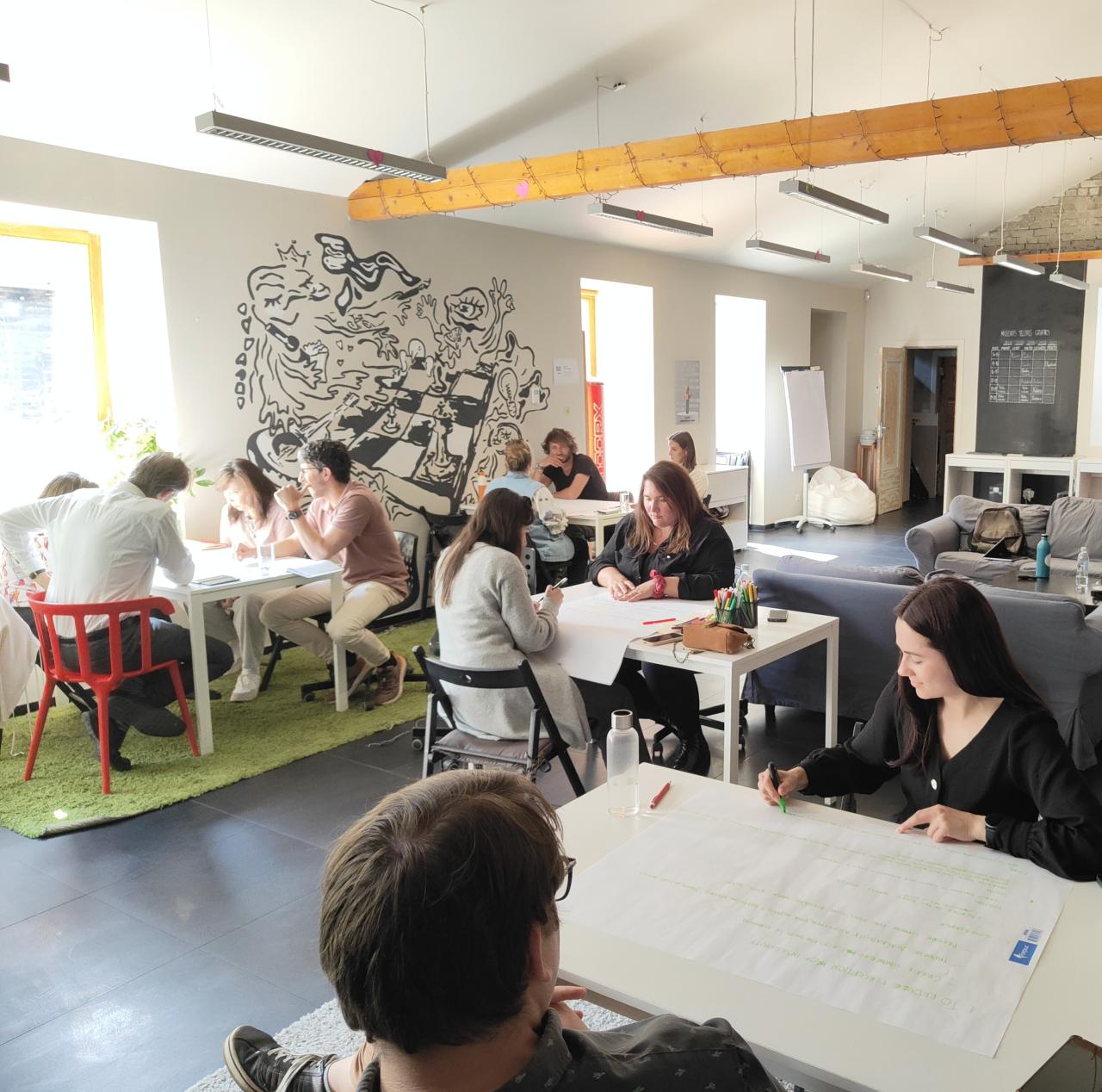CITISENSE 2nd Transnational Meeting: Two Days of Urban Innovation in Liepaja, Latvia
On May 27–28, 2025, the Municipal Police of Liepāja, Latvia, hosted the second transnational meeting of the URBACT CITISENSE Innovation Transfer Network, bringing together delegations from the lead partner city Piraeus (Greece), as well as from Geel (Belgium) and Manresa (Spain).
Over two dynamic days — guided by the Network’s Lead Expert, Dr. Pietro L. Verga — network partners, local specialists and urban innovation experts came together to explore collaborative strategies for enhancing urban safety.
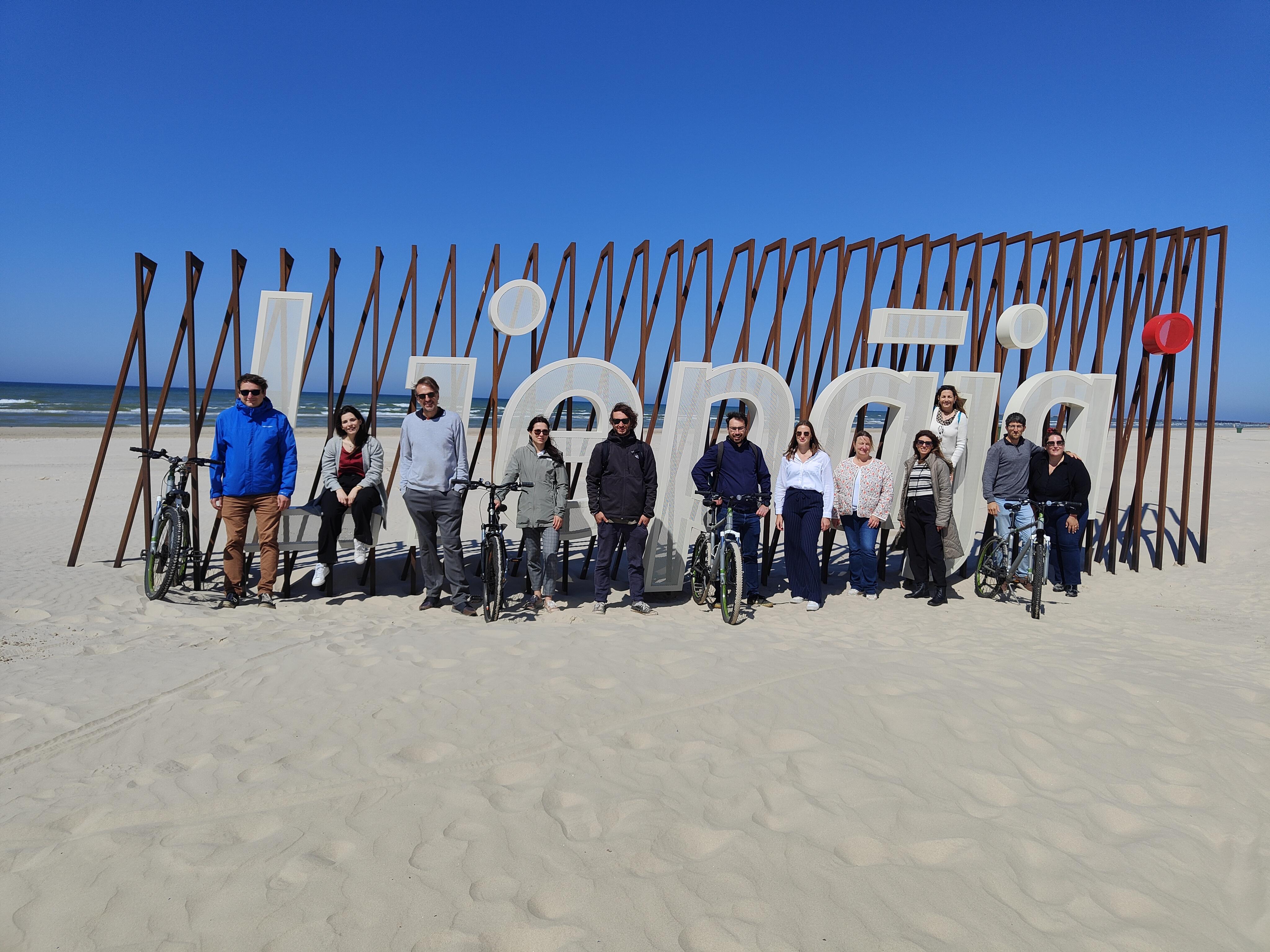
Exploring Urban Security on Two Wheels
The meeting kicked off with a dynamic cycling tour through Liepaja's urban hotspots, where participants experienced first-hand the areas most affected by insecurity. Uniquely, each partner was assigned the perspective of a vulnerable group — such as an elderly person, a person with mobility challenges, or a five-year-old child — and was asked to experience the urban environment through this assigned lens. This exercise aimed to deepen understanding of how different groups navigate public spaces and perceive safety, highlighting both physical and social barriers.
This field visit laid the groundwork for meaningful reflections on how public spaces are used, the visibility of youth and the gaps between urban design and perceived safety.
The participants gained valuable perspectives on Liepāja’s challenges and its efforts to improve public safety and inclusivity, especially after meeting with local stakeholders working to engage young people through athletic programs. Experiencing these environments directly sparked ideas, particularly around designing strategies to use public spaces in ways that reduce insecurity and enhance urban life.
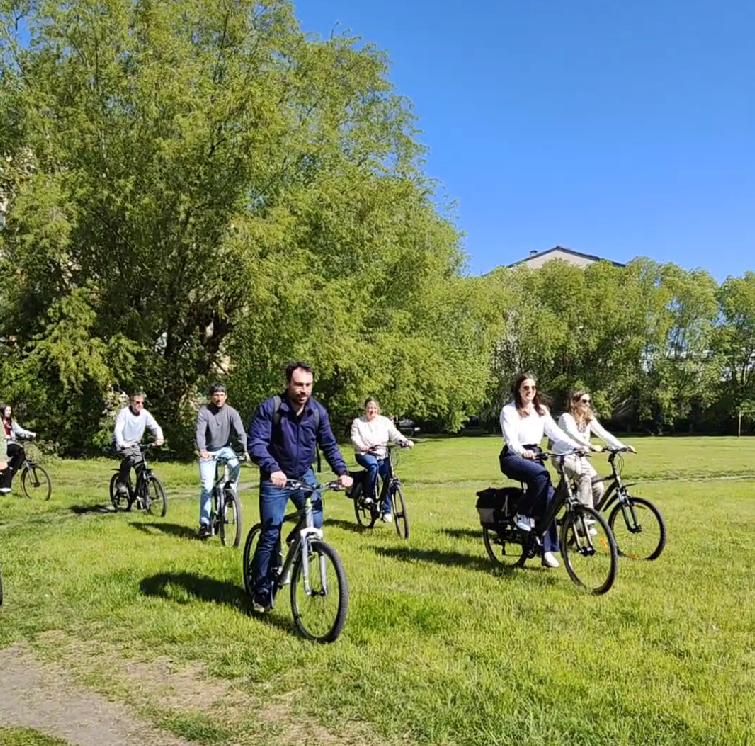
Applying the SHIp Method: Tools for Change
A key moment of the first day was the SHIp (Safe, Humane and Inclusive Public Spaces) Method Workshop, led by URBACT expert Dr. Edna Peza Ramirez at YOU+, Liepāja’s pioneering youth space.
Far from a theoretical session, the workshop involved active brainstorming and case study analysis, as participants used SHIp tools to map local challenges, identify stakeholders and explore ways to involve communities in co-creating bottom-up solutions. By the end, partners gained valuable insights and strategies to apply the SHIp method in their own cities, aiming to strengthen civic engagement and spark innovative urban change.
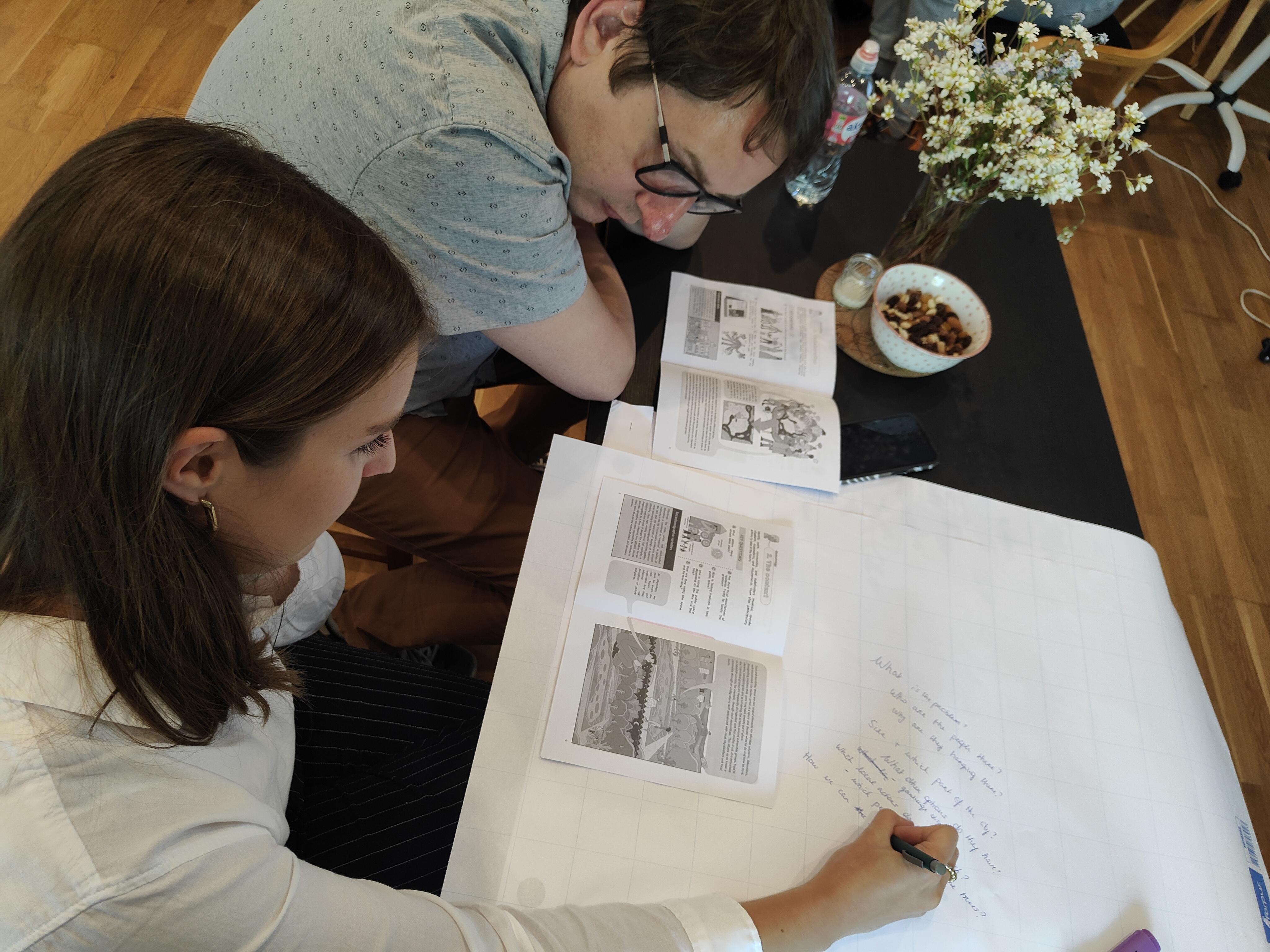
Public Event: Dialogue & Shared Reflections
The evening public event, hosted in the municipal YOU+ youth organization, brought together youth stakeholders, CITISENSE partners, municipal representatives and locals. The event began with a presentation by CITISENSE URBACT Lead Expert Pietro L. Verga on the UIA (Urban Innovative Actions) BeSecure-FeelSecure (BSFS) project, showcasing Piraeus’ innovative approach to urban security.
Pietro’s remarks framed the discussion on creating safer, more inclusive cities while addressing the challenge of improving urban safety without reinforcing negative stereotypes about marginalized communities. Pietro emphasized, among other points, that “media and political rhetoric tend to overemphasize the threat to security posed by minorities and the danger of the places where these minorities reside.”
Adding to the reflections, Anjo Valentí Moll, Deputy Mayor of Security for Manresa, noted, “Building urban safety is not only about policing or infrastructure; it’s about listening to communities, especially young people, and ensuring that everyone feels they have a stake in shaping their city.”
Subsequently, municipal representatives from the YOU+ organization provided insights into their efforts to support local youth, setting the foundation for meaningful engagement among participants. The gathering highlighted the importance of fostering spaces where institutional actors and community members can exchange ideas, share firsthand experiences and work together on solutions that reflect the community’s needs.
To further strengthen this dialogue, each CITISENSE partners offered a brief overview of the composition of their Urban Local Group (ULG) and the initiatives currently underway within their local contexts.
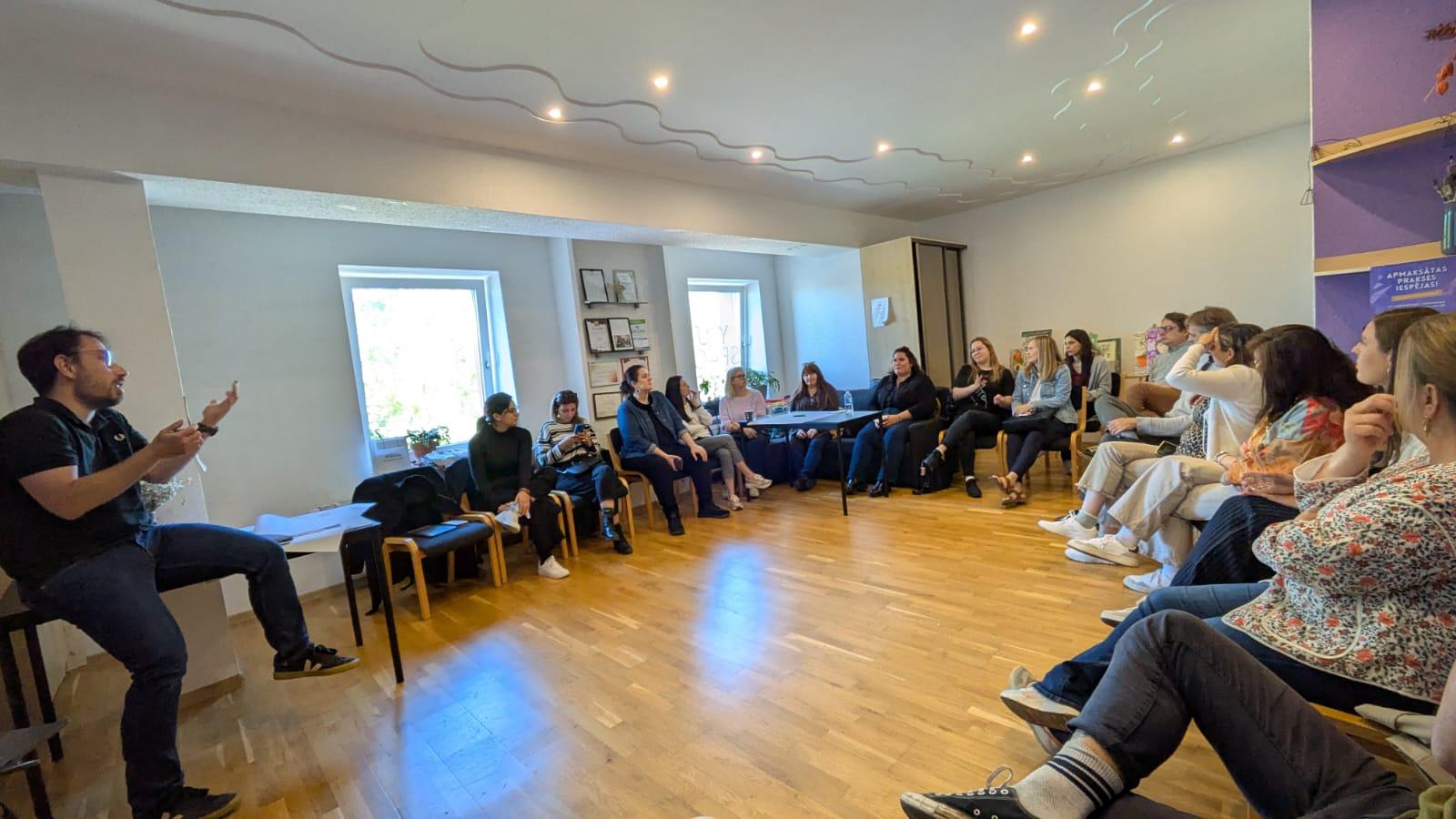
Deep Dives & Knowledge Exchange
Day two moved into focused workshops on the BSFS transfer modules — governance, digital tools, social interventions and physical urban improvements — and began with an energizer led by Dr. Edna Peza, who provided an in-depth overview of the modules, drawing on the BeSecure FeelSecure (BSFS) experience. Both experts, Edna Peza and Pietro L. Verga, facilitated the workshop, guiding each city team through the process of building a strategic roadmap.
Each city team was encouraged to reflect in practical terms on how to adapt and transfer BSFS methods to their own contexts by defining priorities, identifying necessary resources, anticipating challenges, mapping key allies and outlining expected achievements within their one-, five-, and ten-year Integrated Action Plans (IAPs).
The day concluded at the premises of Liepāja’s Municipal Police, where partners presented their strategic roadmaps in a peer review session and received constructive feedback from the URBACT experts and from the other network partners.
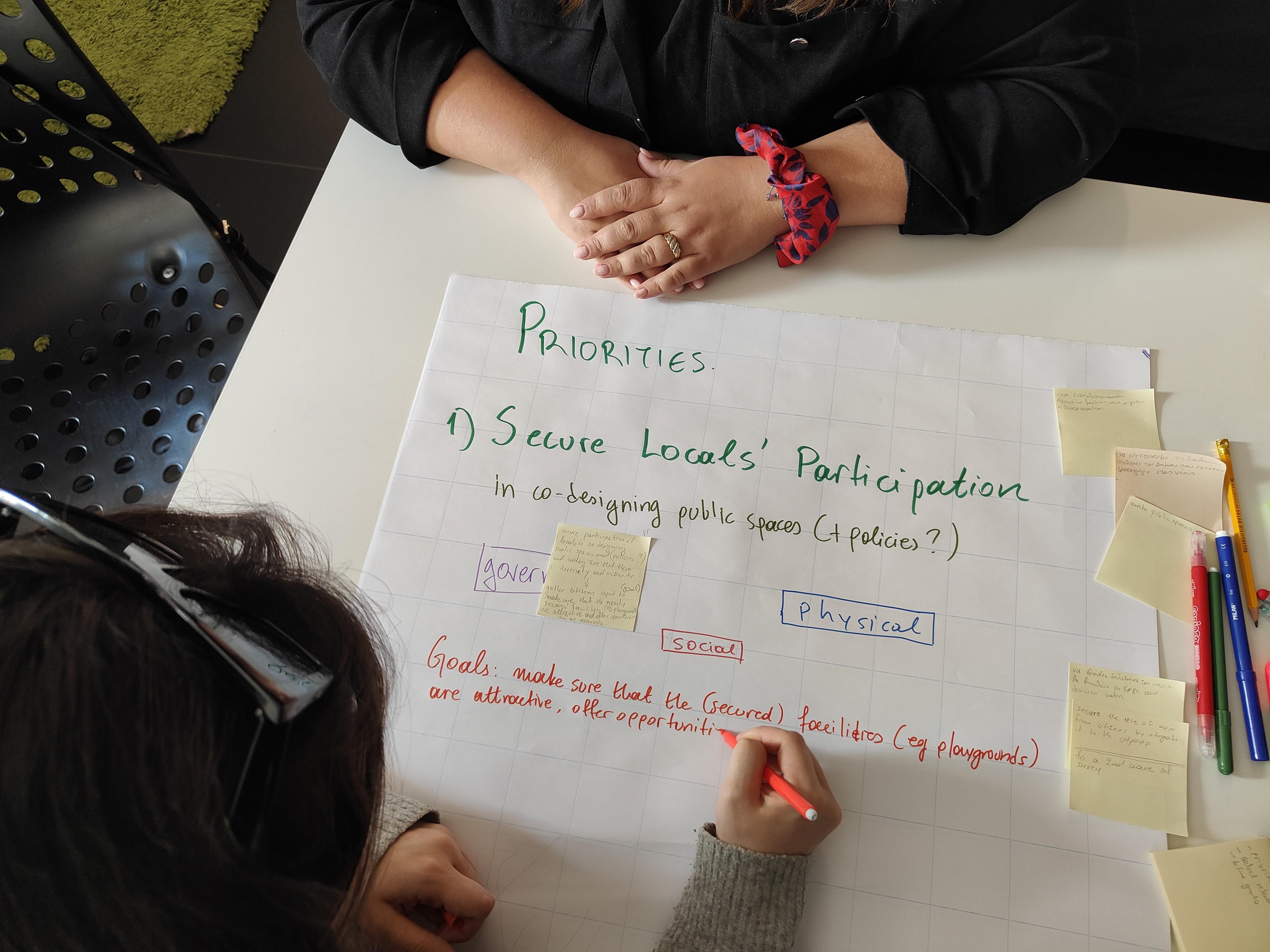
Next Steps for CITISENSE
The meeting concluded with partners mapping out the next steps at the network level - including the planning of future study visits and upcoming transnational meetings - and setting key priorities. With fresh insights and strengthened connections, the CITISENSE network moves forward, aiming to transfer innovation and foster urban change across EU cities.

